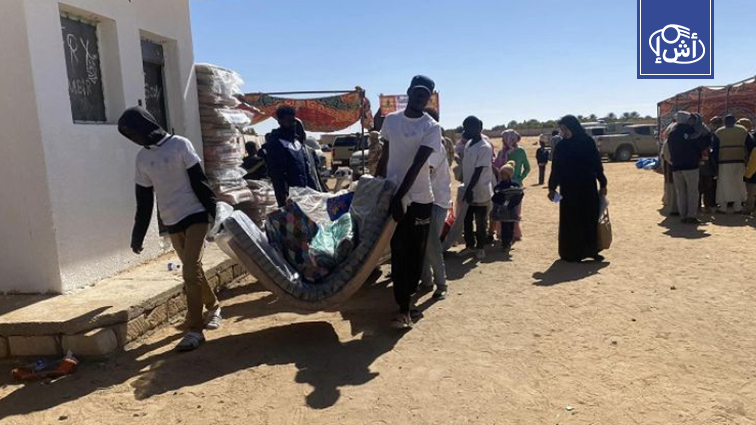Tens of thousands of Sudanese refugees fleeing conflict in their country suffer from difficult living conditions in the Libyan city of Kufra.
The local authorities exhausted the resources allocated to support them, which led to them stopping receiving more refugees.
The official in charge of the program to reduce illegal immigration and the voluntary return of Sudanese communities in Libya, Malik Al-Digawi, explained to “Sudan Tribune” that the conditions in the border triangle, an area that lacks basic services, are getting worse daily with the arrival of more than a thousand refugees daily, especially after the escalation of Battles in El Fasher.
Al-Digawi called on the Sudanese embassy and foreign ministry to request a deadline regarding the new decisions related to the residency of foreigners to settle the situation of Sudanese in Libya, stressing the importance of cooperation between the Sudanese and Libyan authorities to resolve this crisis and provide protection and support to the Sudanese communities in Libya.
Smugglers and human traffickers are exploiting the crisis to transport refugees to the city of Kufra, and since the outbreak of war in Sudan in April 2023, about one million Sudanese have taken refuge in Libya, as Libya has provided facilities such as integrating students, providing health services, and exempting students from tuition fees.
The Libyan authorities have also issued decisions to simplify the residency procedures for foreigners, but these procedures face obstacles, as many refugees lack valid passports, and passport renewal fees reach $200, an amount considered exorbitant by many.
The city of Kufra, located in southeastern Libya, is about 900 kilometers from the Sudanese border. There is no official border crossing between Kufra and Sudan. The closest border crossing is the Ajdabiya-Umm al-Dud crossing, about 500 kilometers from Kufra. Crossers unofficially use unofficial desert crossings. Paved, like the Taza crossing.
The Tunisian president refuses to make Tunisia a transit point for migrants
